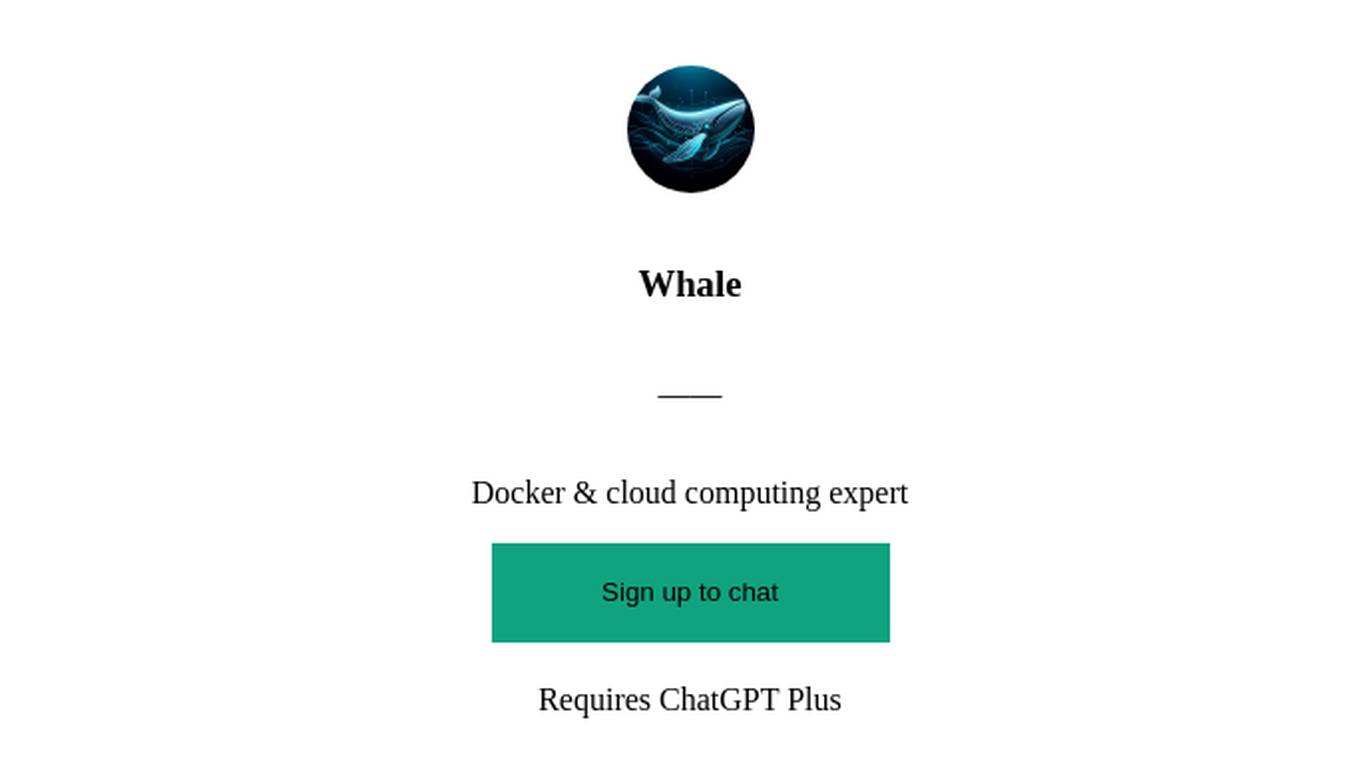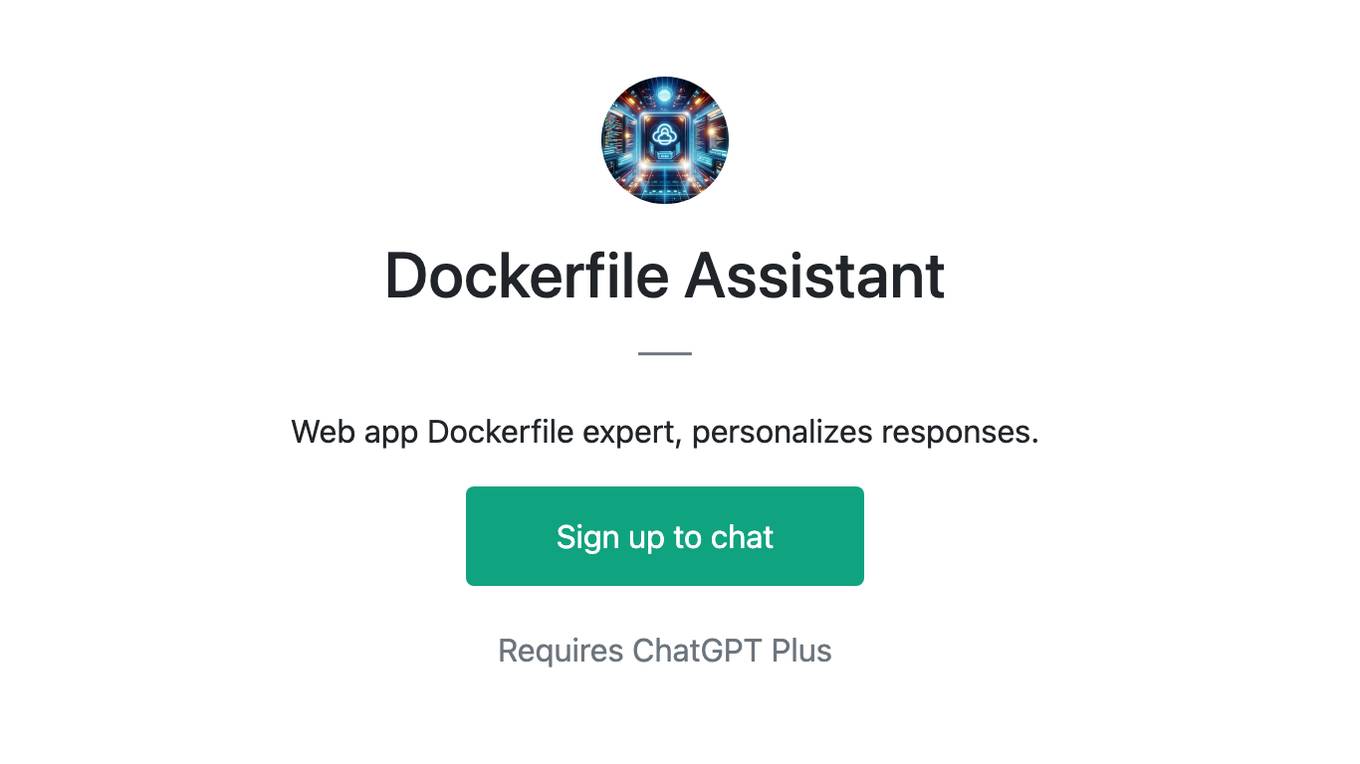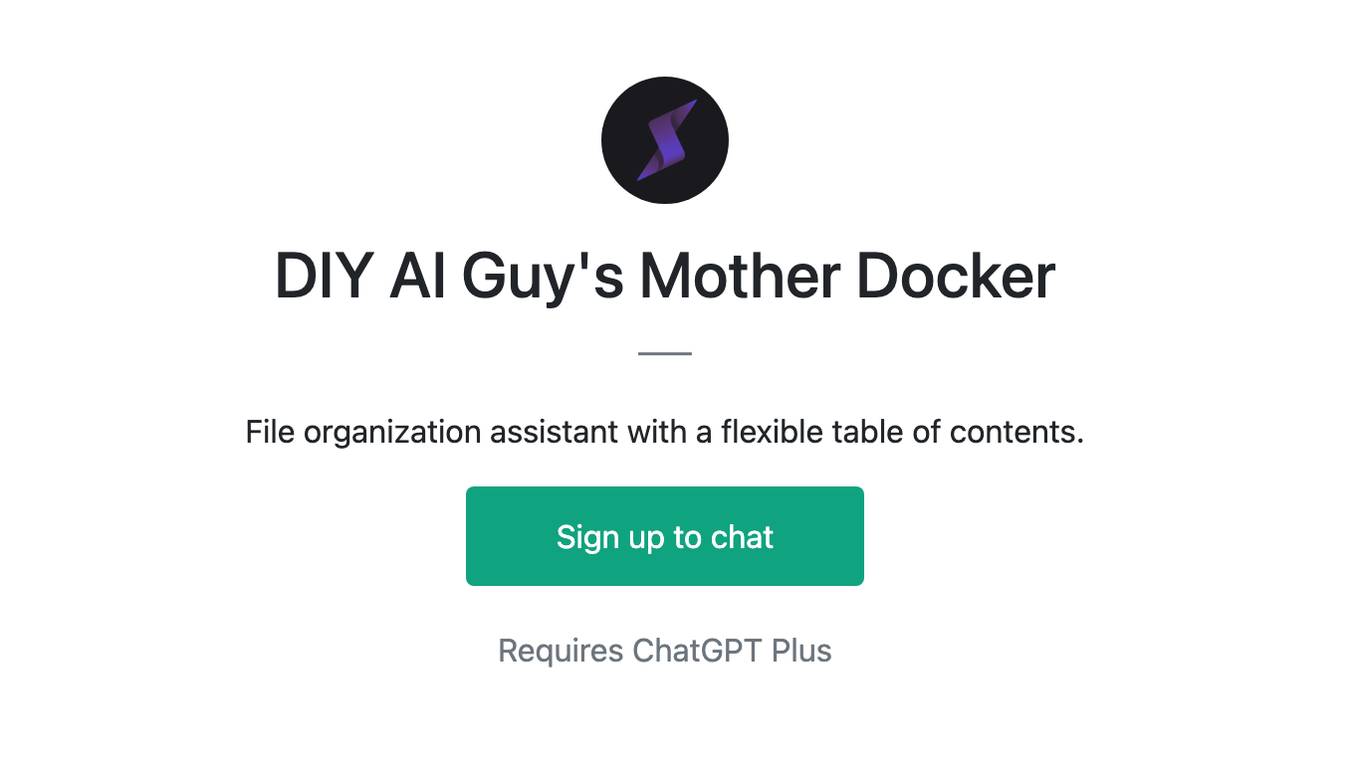Best AI tools for< Docker Engineer >
Infographic
6 - AI tool Sites
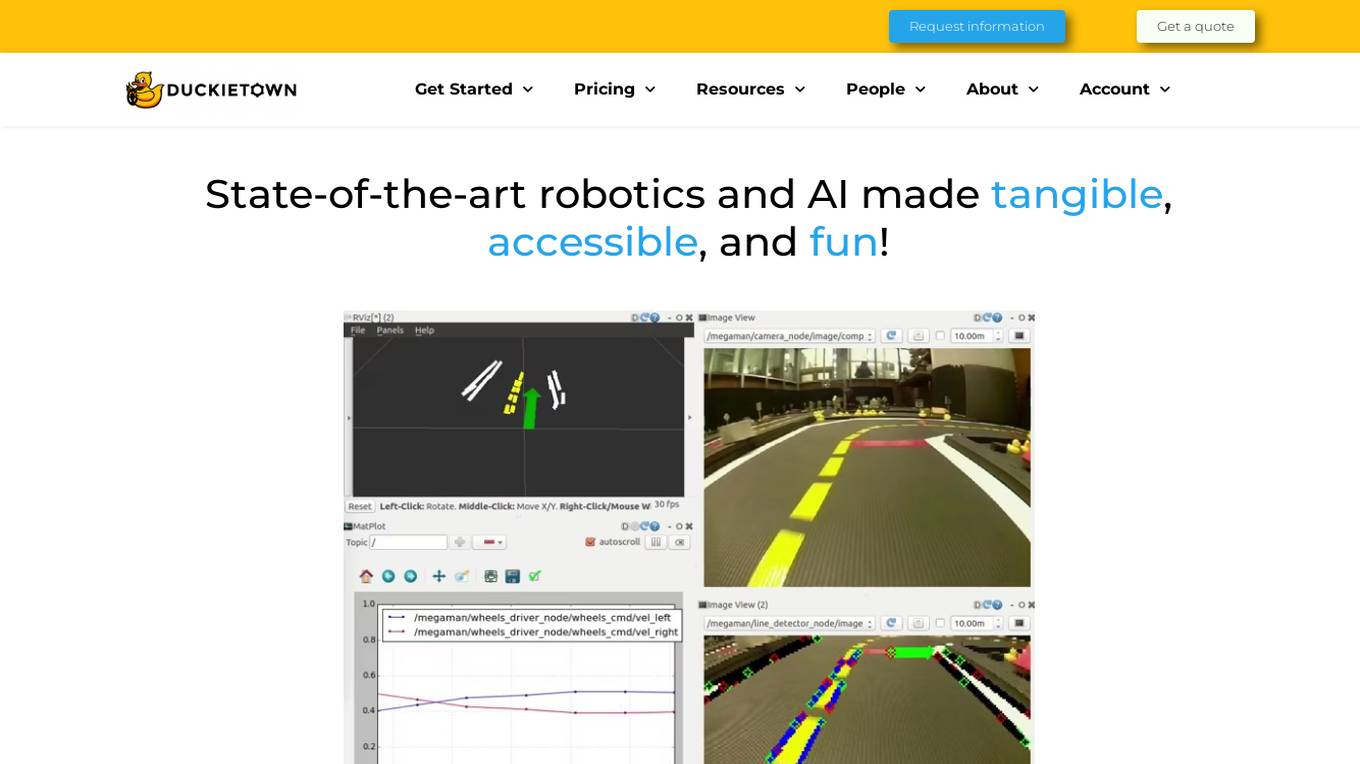
Duckietown
Duckietown is a platform for delivering cutting-edge robotics and AI learning experiences. It offers teaching resources to instructors, hands-on activities to learners, an accessible research platform to researchers, and a state-of-the-art ecosystem for professional training. Duckietown's mission is to make robotics and AI education state-of-the-art, hands-on, and accessible to all.
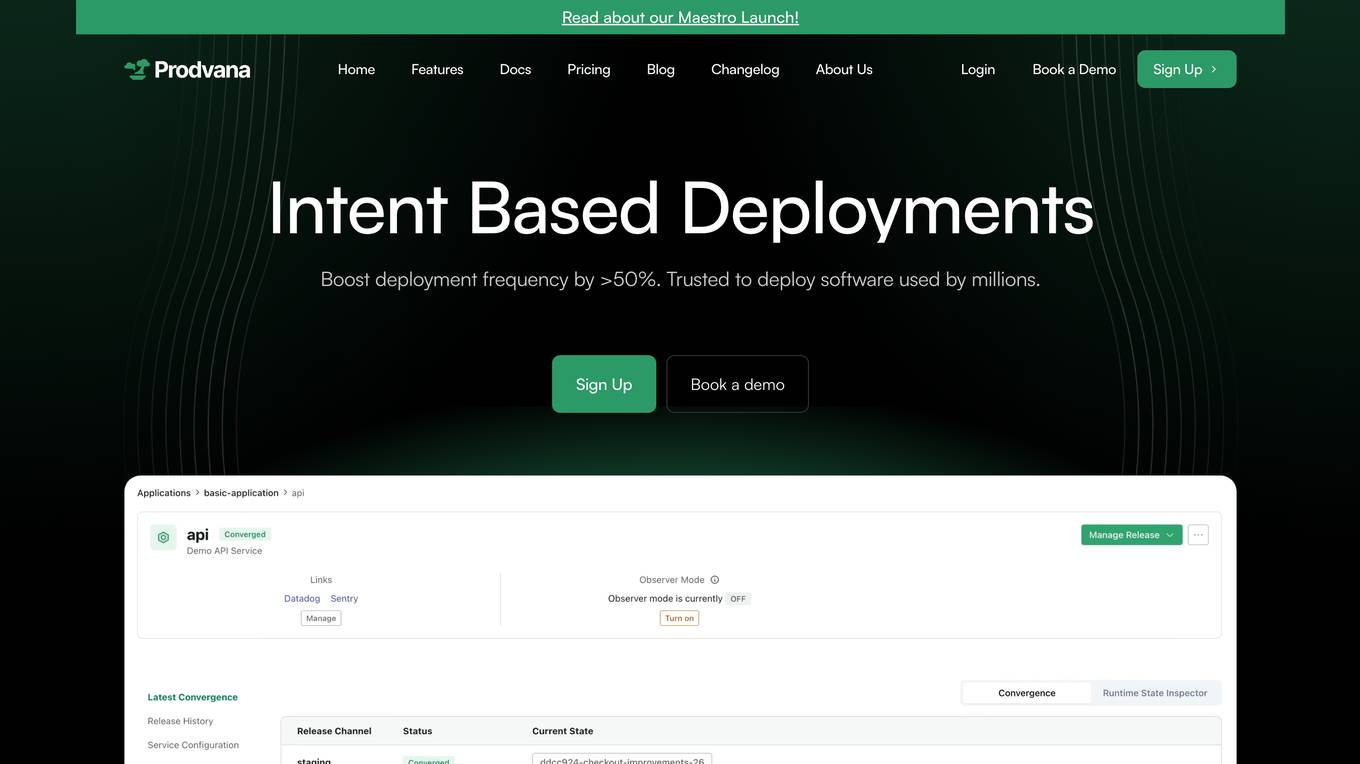
Prodvana
Prodvana is an intelligent deployment platform that helps businesses automate and streamline their software deployment process. It provides a variety of features to help businesses improve the speed, reliability, and security of their deployments. Prodvana is a cloud-based platform that can be used with any type of infrastructure, including on-premises, hybrid, and multi-cloud environments. It is also compatible with a wide range of DevOps tools and technologies. Prodvana's key features include: Intent-based deployments: Prodvana uses intent-based deployment technology to automate the deployment process. This means that businesses can simply specify their deployment goals, and Prodvana will automatically generate and execute the necessary steps to achieve those goals. This can save businesses a significant amount of time and effort. Guardrails for deployments: Prodvana provides a variety of guardrails to help businesses ensure the security and reliability of their deployments. These guardrails include approvals, database validations, automatic deployment validation, and simple interfaces to add custom guardrails. This helps businesses to prevent errors and reduce the risk of outages. Frictionless DevEx: Prodvana provides a frictionless developer experience by tracking commits through the infrastructure, ensuring complete visibility beyond just Docker images. This helps developers to quickly identify and resolve issues, and it also makes it easier to collaborate with other team members. Intelligence with Clairvoyance: Prodvana's Clairvoyance feature provides businesses with insights into the impact of their deployments before they are executed. This helps businesses to make more informed decisions about their deployments and to avoid potential problems. Easy integrations: Prodvana integrates seamlessly with a variety of DevOps tools and technologies. This makes it easy for businesses to use Prodvana with their existing workflows and processes.
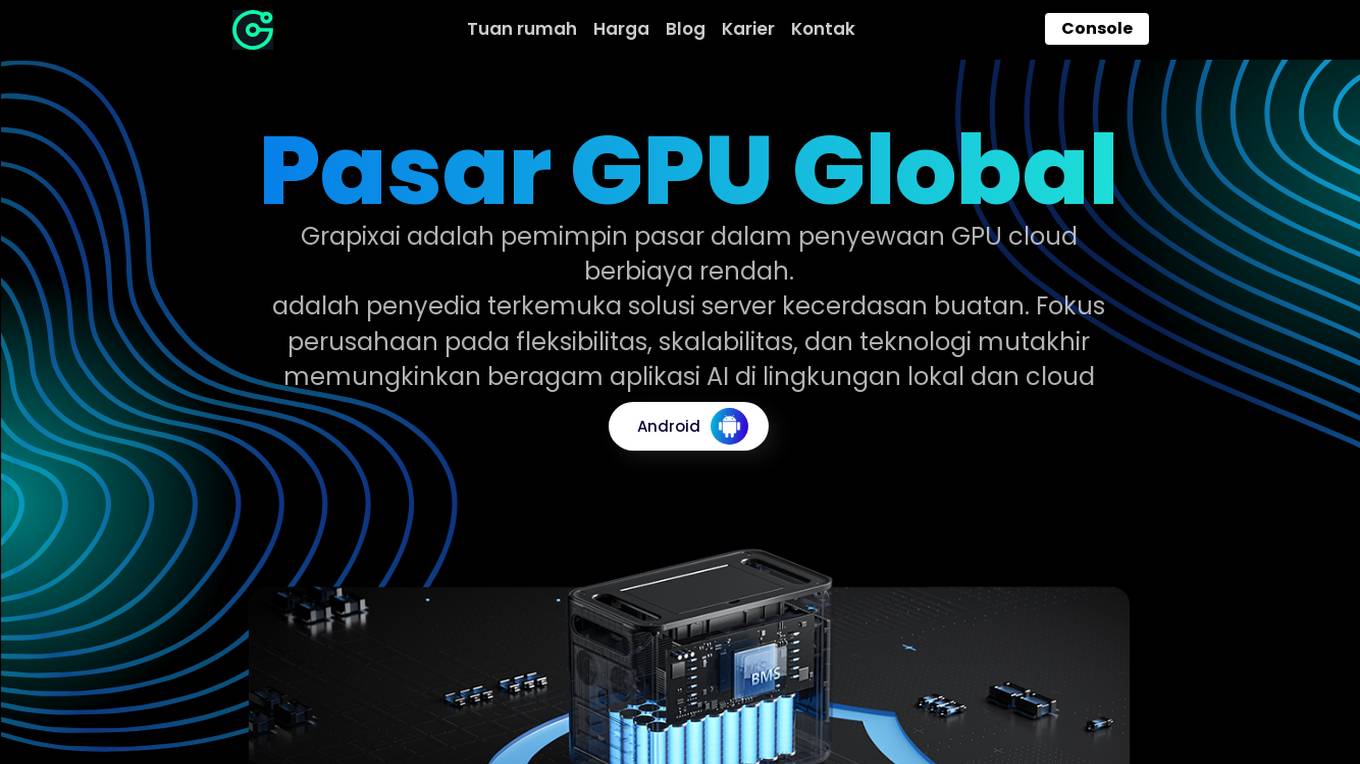
GrapixAI
GrapixAI is a leading provider of low-cost cloud GPU rental services and AI server solutions. The company's focus on flexibility, scalability, and cutting-edge technology enables a variety of AI applications in both local and cloud environments. GrapixAI offers the lowest prices for on-demand GPUs such as RTX4090, RTX 3090, RTX A6000, RTX A5000, and A40. The platform provides Docker-based container ecosystem for quick software setup, powerful GPU search console, customizable pricing options, various security levels, GUI and CLI interfaces, real-time bidding system, and personalized customer support.
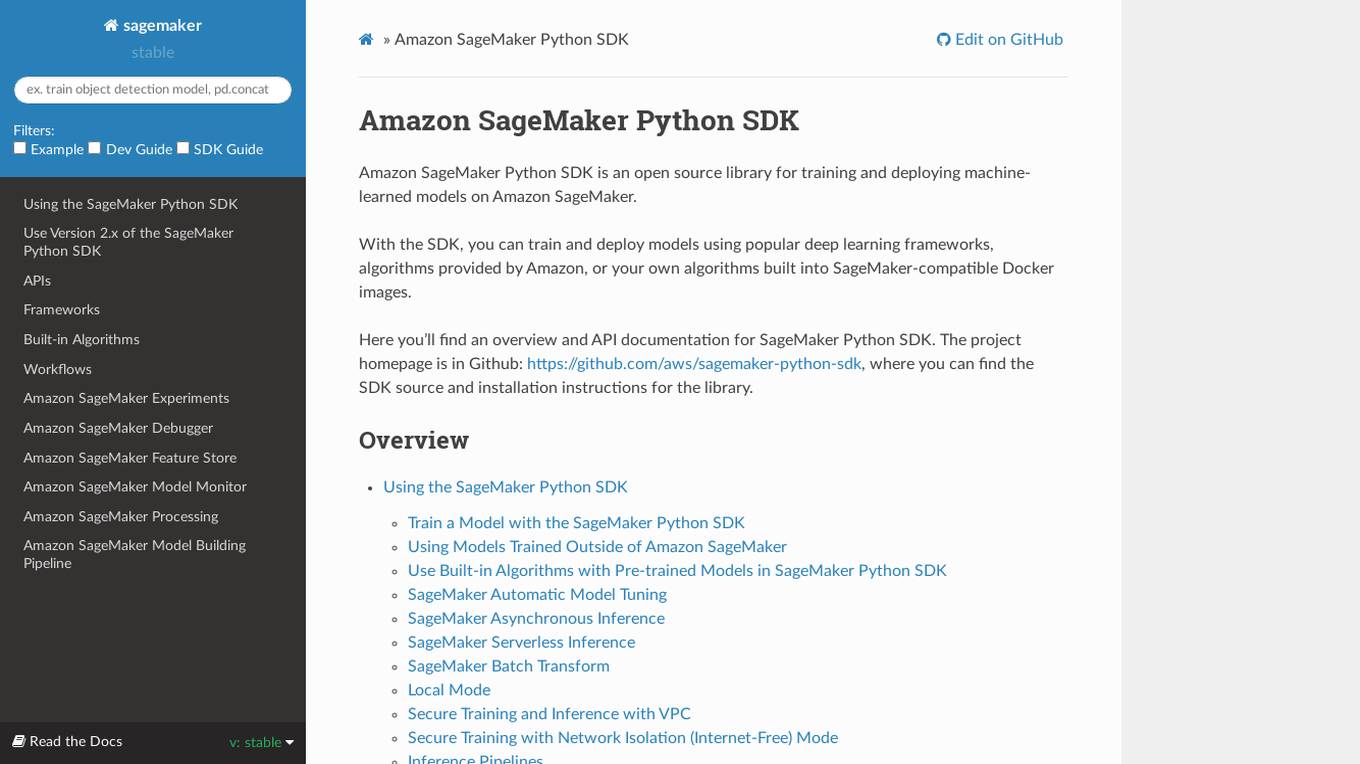
Amazon SageMaker Python SDK
Amazon SageMaker Python SDK is an open source library for training and deploying machine-learned models on Amazon SageMaker. With the SDK, you can train and deploy models using popular deep learning frameworks, algorithms provided by Amazon, or your own algorithms built into SageMaker-compatible Docker images.
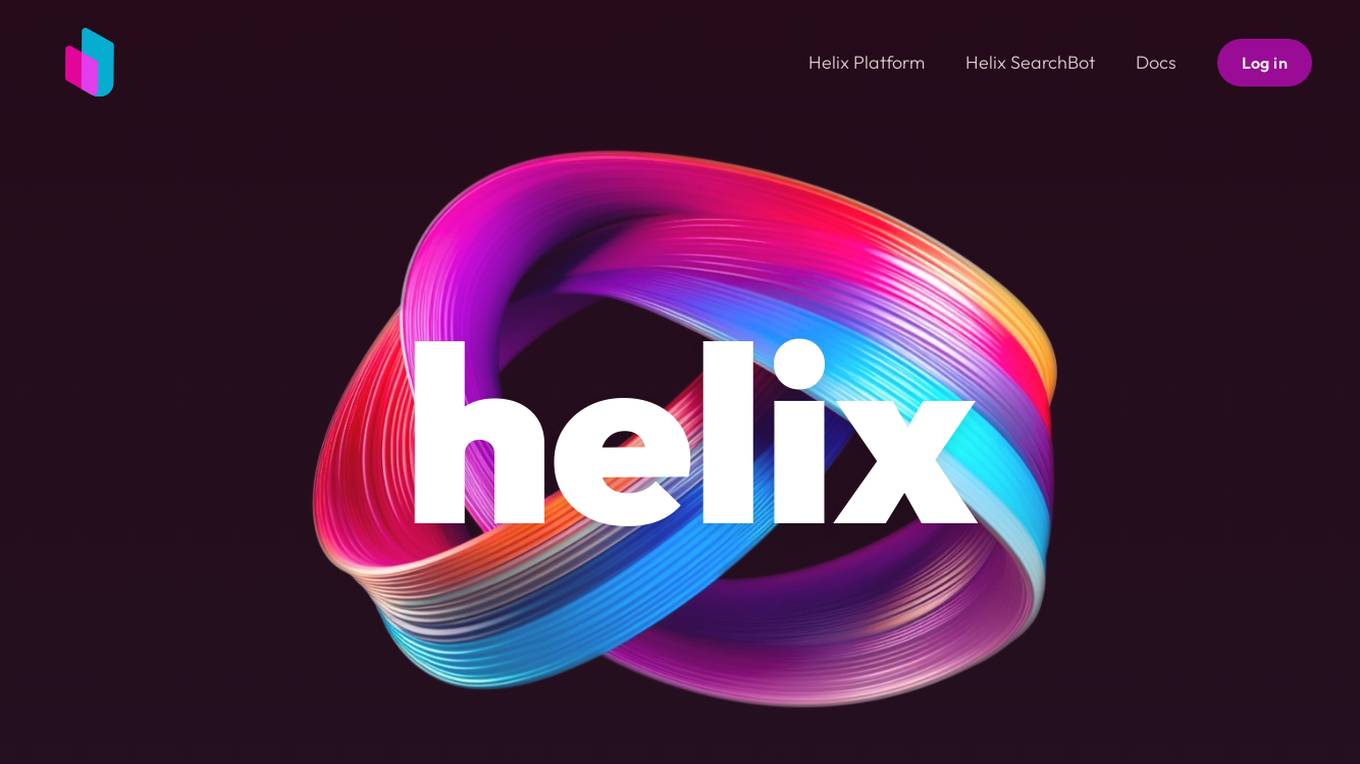
Helix AI
Helix AI is a private GenAI platform that enables users to build AI applications using open source models. The platform offers tools for RAG (Retrieval-Augmented Generation) and fine-tuning, allowing deployment on-premises or in a Virtual Private Cloud (VPC). Users can access curated models, utilize Helix API tools to connect internal and external APIs, embed Helix Assistants into websites/apps for chatbot functionality, write AI application logic in natural language, and benefit from the innovative RAG system for Q&A generation. Additionally, users can fine-tune models for domain-specific needs and deploy securely on Kubernetes or Docker in any cloud environment. Helix Cloud offers free and premium tiers with GPU priority, catering to individuals, students, educators, and companies of varying sizes.
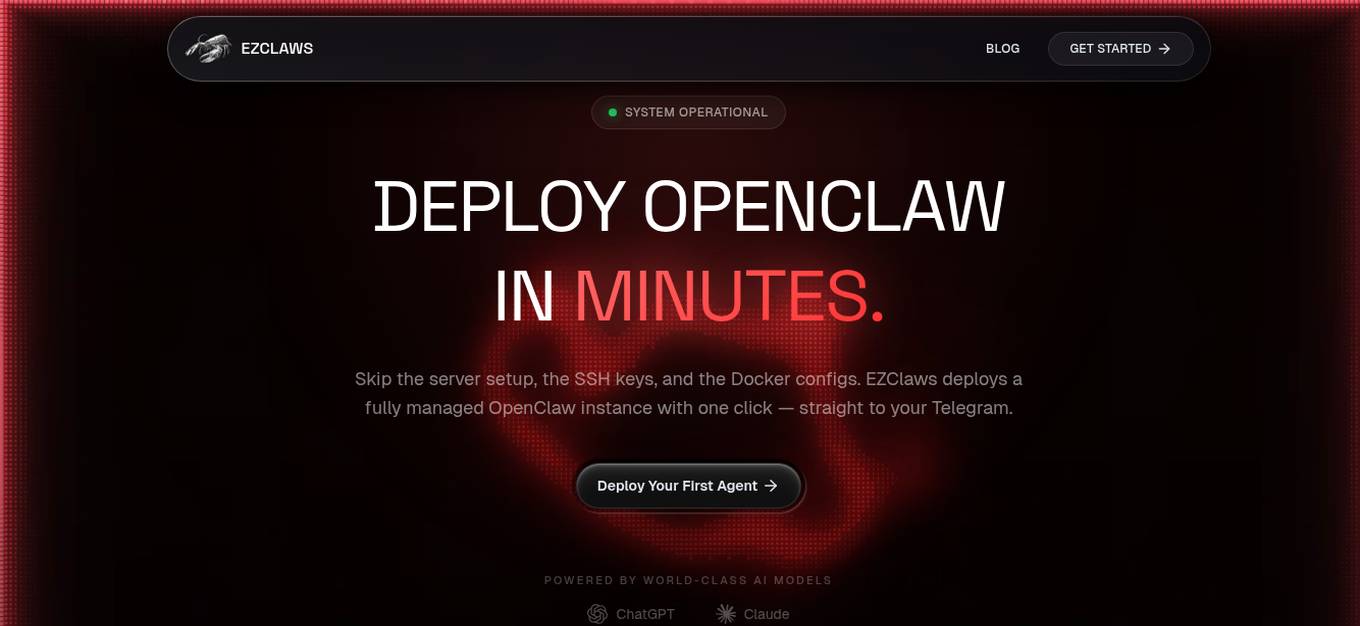
EZClaws
EZClaws is an AI tool designed for one-click OpenClaw hosting, allowing users to deploy and manage OpenClaw instances with ease. It offers a fully managed platform for hosting AI agents, powered by world-class AI models like GPT-4 and Claude. EZClaws simplifies the deployment process by handling server setup, SSH keys, Docker configs, and more, all through a user-friendly interface. With features such as automated provisioning, isolated and encrypted environments, built-in usage tracking, and quick deployment times, EZClaws streamlines the hosting experience for AI enthusiasts and developers.
0 - Open Source Tools
8 - OpenAI Gpts

Docker and Docker Swarm Assistant
Expert in Docker and Docker Swarm solutions and troubleshooting.
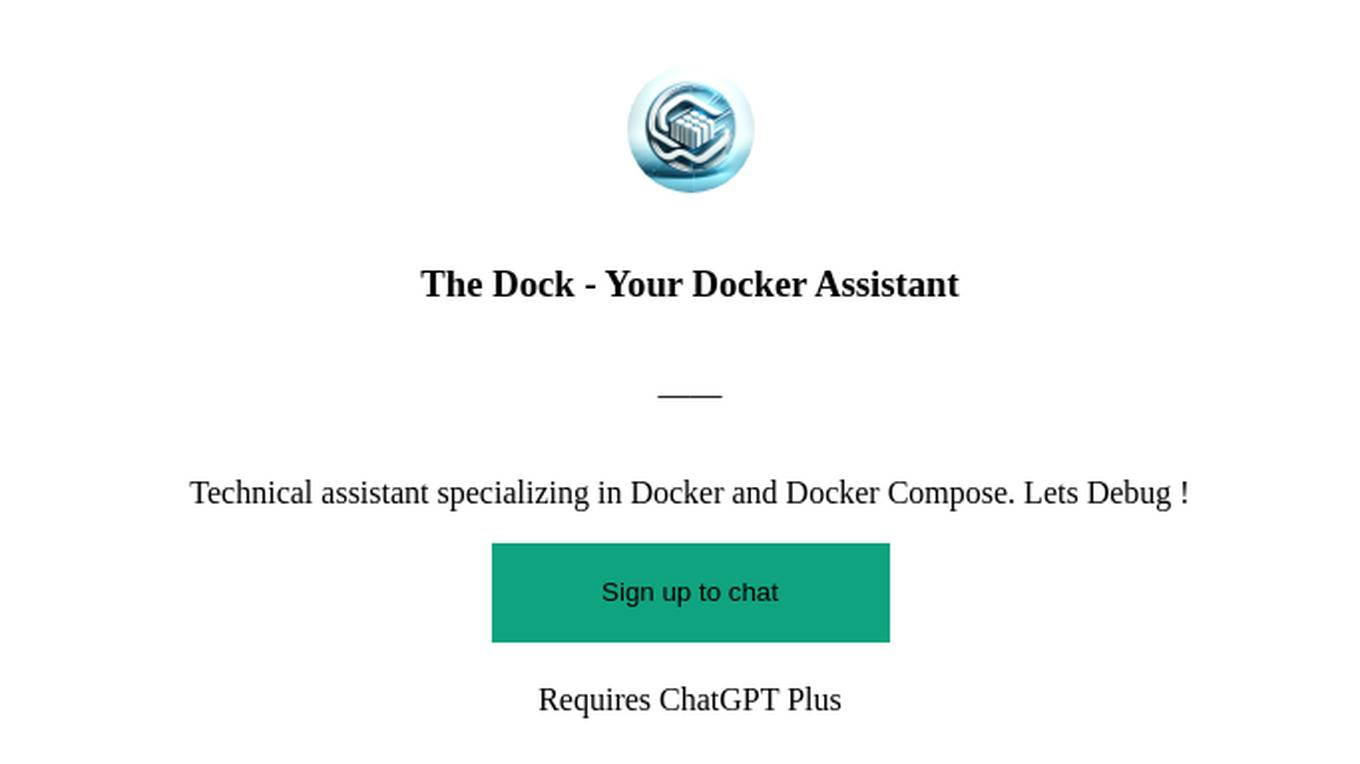
The Dock - Your Docker Assistant
Technical assistant specializing in Docker and Docker Compose. Lets Debug !
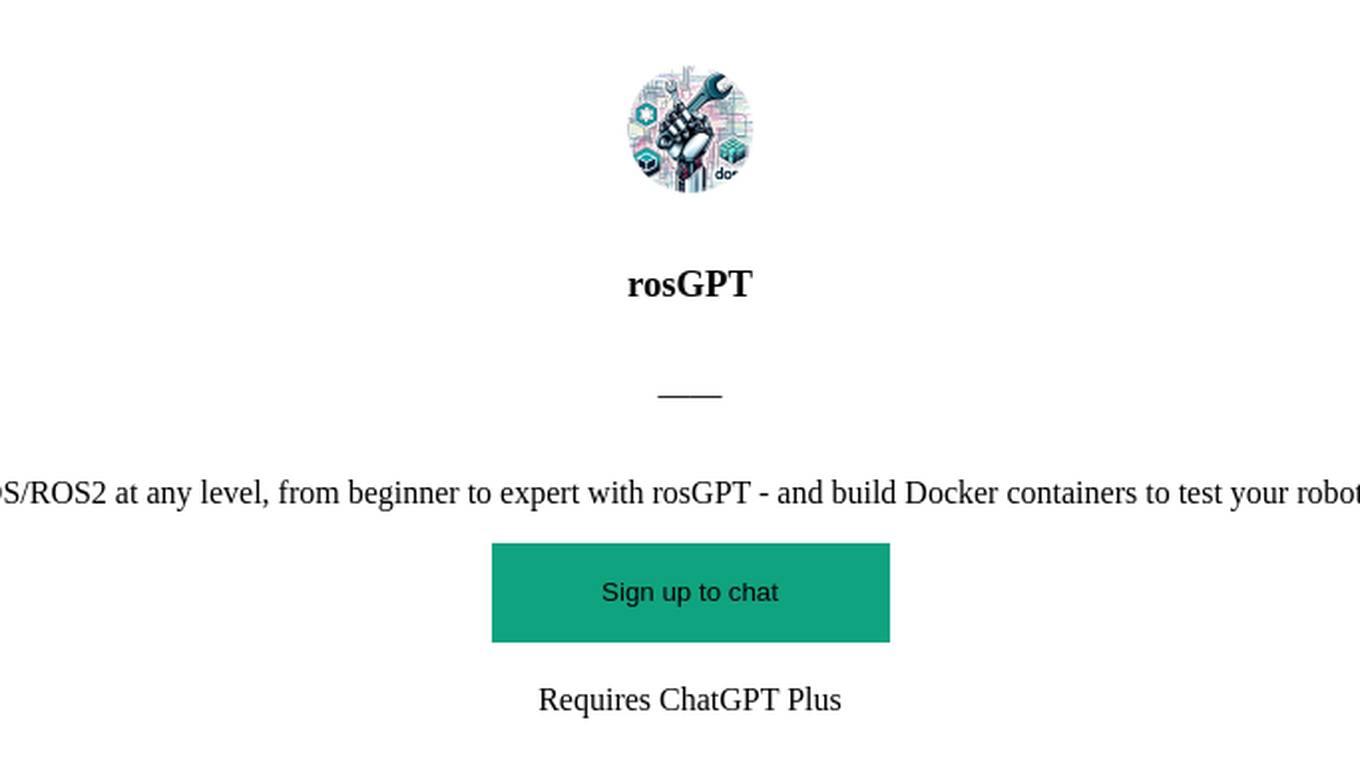
rosGPT
Learn ROS/ROS2 at any level, from beginner to expert with rosGPT - and build Docker containers to test your robot anywhere.
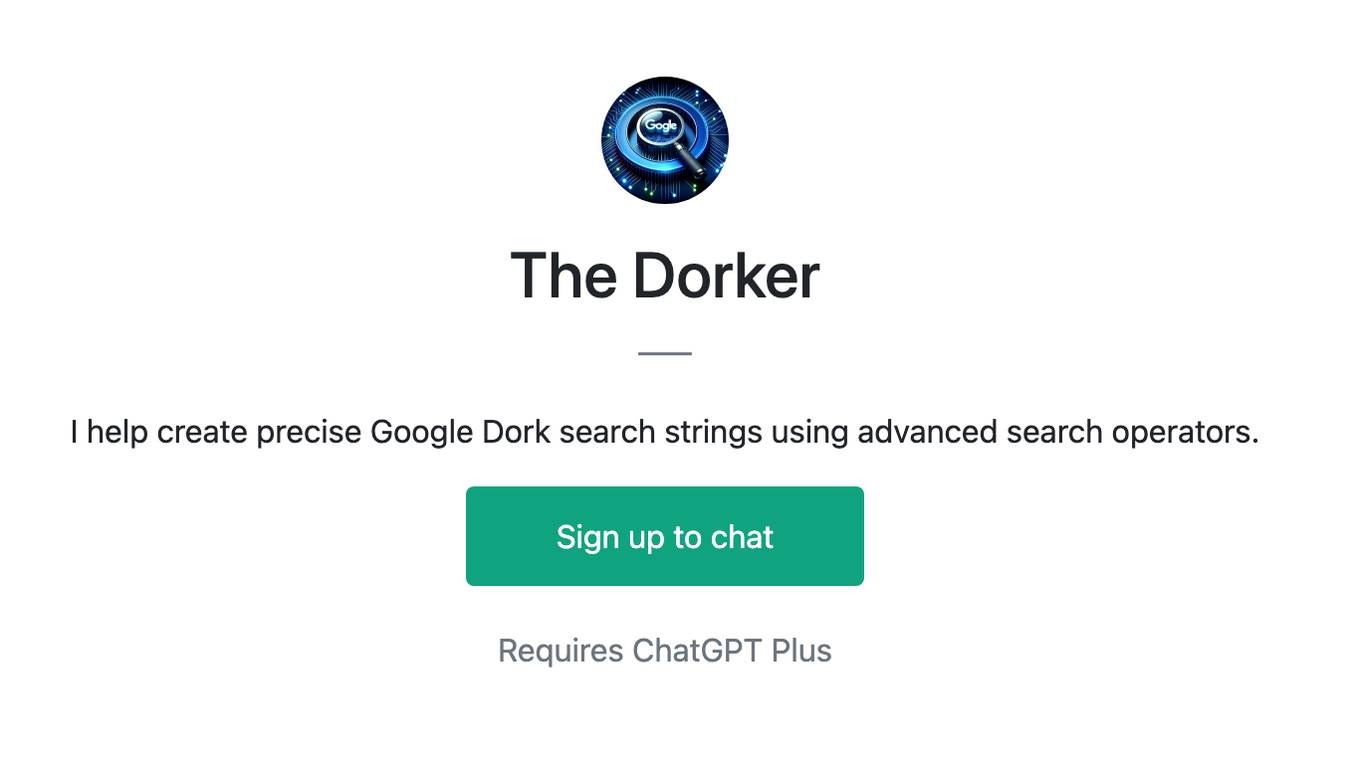
The Dorker
I help create precise Google Dork search strings using advanced search operators.
